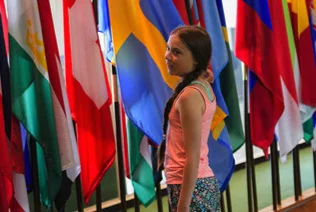Drilled News — I conceived and produced this series of local 2020 election and environmental racism stories, the inaugural reporting project of Drilled Local.
Read MoreSIERRA Magazine — Major emitters fail to make greenhouse gas reduction commitments at the United Nations’ latest high level climate meeting.
Read MoreThe Revelator — President Trump promised massive deregulation — and although he’s lost some cases in court, his successes still threaten people’s health and the climate.
Read MorePopular Science — New cases, shifting strategies, and the uncertainty of a reshuffled bench
Read MoreHuffPost — The newest wave of climate change lawsuits doesn’t target states or the federal government, or even the power plants that spew planet-warming pollution. They involve cities and counties who want to go after the oil, natural gas and coal producers directly, demanding money to help them cover the escalating costs of wildfires, landslides and other climate-linked disasters.
Read MoreReveal/Center for Investigative Reporting—The Trump administration's nominee to lead NASA is a climate change denier with no sci-tech background. If he's confirmed, he'll be able to set the nation's climate science agenda for years to come.
Read MoreReveal/Center for Investigative Reporting—Seven months into his presidency, Donald Trump has yet to fill dozens of science leadership roles at federal agencies. Of Trump’s 12 nominees and appointees, six have worked for the industries they would regulate or award contracts to.
Read MoreArctic Deeply—The World Wildlife Fund spent 18 months scoring how well Arctic nations are meeting their environmental goals. But as the WWF Arctic Programme’s communications chief Clive Tesar explains, the grades are just part of a bigger picture.
Read MoreArctic Deeply—By including $1.8 billion in oil and gas revenues from the Arctic National Wildlife Refuge (ANWR) in its 2018 budget, the Trump administration has set out to dismantle former president Barack Obama’s conservation and climate legacies in the American Arctic.
Read MoreOceans Deeply—An international study finds that protecting huge swathes of the ocean offers the best chance to save coral reefs, marine life and coastal areas vital to human health from the impacts of global warming.
Read MoreArctic Deeply—As climate change ushers new plants and animals into the Arctic, new conservation models are needed, and we’d be wise to learn from the region’s original inhabitants, says Finnish geographer Tero Mustonen.
Read MoreArctic Deeply – For decades, wind, river and ocean currents have carried DDT, PCBs and other persistent organic chemical pollutants into the Arctic from industrial and agricultural production elsewhere in the world, creating serious health problems for humans and wildlife as they accumulate in the food chain.
Read MoreArctic Deeply – The 2015 Paris agreement to limit greenhouse gas emissions may not prevent as much as half of the permanently frozen soils at the Earth's highest latitudes from thawing, according to a new study.
Read MoreMen's Journal – On March 29 Secretary of the Interior Ryan Zinke signed an order to end the Obama administration’s 2016 moratorium on new leases to mine coal on federal lands. The order also killed an ongoing analysis of the program’s impacts on the environment, particularly how the carbon dioxide created by burning that coal would hinder U.S. efforts to blunt the worst impacts of climate change.
Read MoreMen's Journal – President Donald Trump has begun to make good on his vow to dismantle President Obama’s climate and energy policies. On Tuesday, March 28, Trump signed a sweeping executive order that unmakes Obama administration efforts to slash emissions from coal-fired power — the greatest source of climate-altering greenhouse gas pollution — and prepare communities for the effects of global warming. Here's a breakdown of what it means for the country's energy and climate policy.
Read MoreArctic Deeply – Strangely warm temperatures are sending the Arctic Ocean's sea ice on a downward spiral that could have far-reaching implications for the region's people and wildlife. The strange winter of 2016-17 has closed with air temperatures over the Arctic Ocean still several degrees above freezing, and sea ice poised to set a record low not seen over nearly four decades of satellite tracking.
Read More














